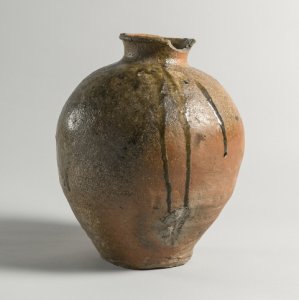Presented By: University of Michigan Museum of Art (UMMA)
Clay as Soft Power: Shigaraki Ware in Postwar America and Japan

Explore The Uncharted History of How Pottery Transformed Global Relations
Clay As Soft Power examines how Shigaraki ware ceramics transformed the American public’s image of Japan, helping the country shift its identity from World War II enemy to Cold War ally to global cultural change maker. Known for its earthy tones, rough clay surfaces, and natural ash glazes, Shigaraki wares originated from one of six ancient kilns of Japan, and has a rich history from the 13th century to today. This exhibition explores three distinct periods of that history, telling a story of global intrigue, covert international relations, and the evolution of this uniquely Japanese art form.
Lead support for this exhibition is provided by the U-M Office of the Provost, the Japan World Exposition 1970 Commemorative Fund, the E. Rhodes and Leona B. Carpenter Foundation, the National Endowment for the Arts, the Michigan Arts and Culture Council, and the U-M Center for Japanese Studies. Additional generous support is provided by the Japan Foundation, James M. Trapp, Nancy and Joe Keithley, and the William C. Weese, M.D. Endowment for Ceramic Arts.
Clay As Soft Power examines how Shigaraki ware ceramics transformed the American public’s image of Japan, helping the country shift its identity from World War II enemy to Cold War ally to global cultural change maker. Known for its earthy tones, rough clay surfaces, and natural ash glazes, Shigaraki wares originated from one of six ancient kilns of Japan, and has a rich history from the 13th century to today. This exhibition explores three distinct periods of that history, telling a story of global intrigue, covert international relations, and the evolution of this uniquely Japanese art form.
Lead support for this exhibition is provided by the U-M Office of the Provost, the Japan World Exposition 1970 Commemorative Fund, the E. Rhodes and Leona B. Carpenter Foundation, the National Endowment for the Arts, the Michigan Arts and Culture Council, and the U-M Center for Japanese Studies. Additional generous support is provided by the Japan Foundation, James M. Trapp, Nancy and Joe Keithley, and the William C. Weese, M.D. Endowment for Ceramic Arts.